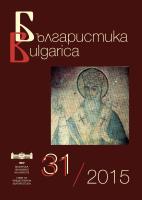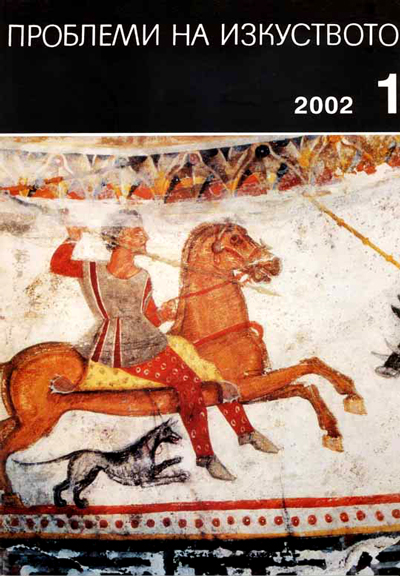
We kindly inform you that, as long as the subject affiliation of our 300.000+ articles is in progress, you might get unsufficient or no results on your third level or second level search. In this case, please broaden your search criteria.

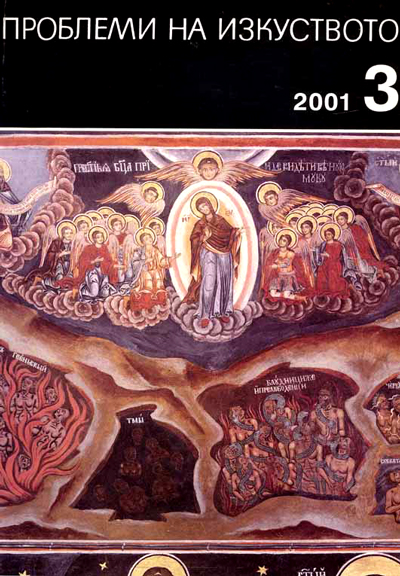
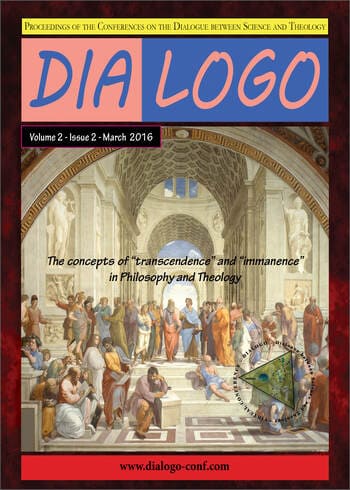
Human interests to Religion and Metaphysics are well explained by the desire of the people to answer to fundamental and eternal questions as “what is the sense of life” and “what is the purpose of life”. These questions have accompanied them from the beginning of conscious life. Many intellectuals, scientists and writers of former USSR and democratic Russia have brought essential contributions, opened new directions and finally have enriched with new concepts, ideas, ideologies and systems the worldwide Philosophy and Religion. A possible answer is the Creation allowing to Divinity to transcend in common life. Soul as Spiritual reflection of Divinity tends to perfection, reiterating in every generation the transcendence to God. At first sight there are no meeting points between Transcendence and Cosmism because the last notion has its beginning in the progress of Science. The evolution of modern Sciences, philosophical concepts and Religion gradually demonstrates correlated aspects which must be discovered in the future.
More...
In science, generally, the idea of research captures apriori the authority of the human being on the investigated reality. Researchers’ presumption of superiority in relation to what search is always clear and incontrovertible. Theological science and Theology researchers cannot benefit and cannot claim that presumption. If however they do, then we no longer talk about Theology, but about philosophical religion. In this study we will investigate the issue of God’s transcendence as objective argument of His existence. Given that we will not talk about chemical substances or about literary analysis, our research is enriched or impoverished not by the scientific competence that we have, but by the availability of God’s Being and our willingness to make of this study a scientific expression and a scientific experience of a dialogical meeting between us and God. When there are no common approaches to Theology and Philosophy, approaches based on our ability to intuit and determine the reality that surrounds us, we will evoke, as honest as possible, the reality of the scientific dialogue between us and God, a dialogue necessary in such a study. We hope that, based on the three chapters of this research, our thesis “Transcendence as Objective Argument of the Existence of the Personal God”, will convince both scientifically and in terms of the dialogue with God.
More...
On the occasion of the conference on Transcendence and Immanence - a topic building on the dialogue between philosophy and theology in the modern and post-modern time -, among the produced subjects, a discussion was held on the role played in respect with this dialogue by the inter-war famous philosophers, such as Lucian Blaga and Dumitru Stăniloaie. Below, we will present the issue of Transcendence according the philosopher-poet Lucian Blaga’s vision; his vision is structured into a Trilogy in his work: The Trilogy of Knowledge - The Dogmatic Aeon, The Luciferic Knowledge, The Transcendental Censorship - The Trilogy of the Culture - Horizon and Style; The Mioritic Space; The Genesis of the Metaphor and The Meaning of Culture - and The Trilogy of Values - Science and Creation; Magic Thinking and Religion; Art and Value. In these trilogies, the philosopher - poet elaborates, from an original metaphysical point of view, on the dimension of the knowledge of Transcendence - which he would define in in The Horizon of Mystery and Revelation. His vision will be addressed in a new theory of knowledge, which the philosopher-poet Lucian Blaga would distinguish as paradisiac knowledge and Lucifer knowledge, within a new Metaphysics that would allow access to Transcendence and to the wonders beyond. Postulating the existence of certain faculties of Conscience, his Metaphysics would become, according to the Theory of Transcendence, a must for the human spirit; a proof for his approach would be the great philosophical systems of the world, from the antique to the modern.
More...
The article deals with the theme of the Logos` immanence in the creation. The first part includes a scientific perspective while the second, a theological one. The first evidence that the universe has a beginning dates back to the 20s of last century. Most scientists believed until then that the universe was stationary and had always existed; there are references to the big bang, string theory, M theory. The second part encompasses a perspective on the theme of the rational nature of the world which constitutes a firm foundation for dialogue between Theology and science. The logoi have a particularizing or a unifing function, and the complete unity of the logoi is realized through and by the Logos, the Word of God. The essential difference between paradigms and logoi is that the latter belong to the temporal level and to the empirical world, while the former preexist synthetically into God.The uncreated divine energies are the logoi in the action of creating and supporting of the beings.
More...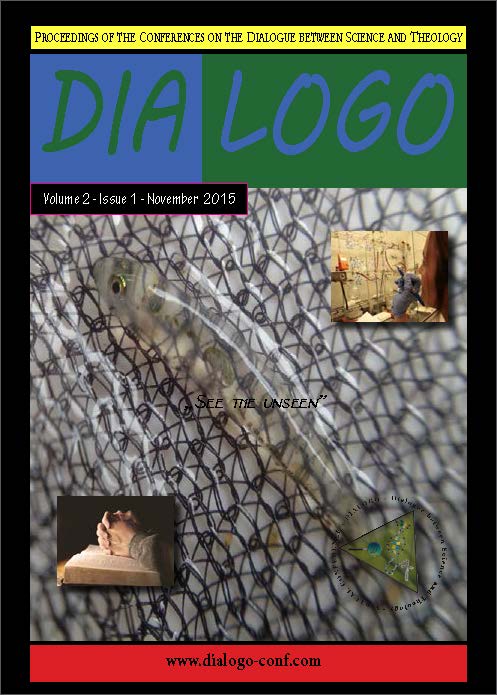
Elizabeth Cullinan’s short story “Life After Death” depicts a day in the life of a young New Yorker, Constance, walking along Lexington Avenue, attending the evening Mass at a Dominican church and visiting the Catholic college where she worked part time to pick up her paycheck. Though the woman is involved with the married Francis Hughes and confronted with the burden of the past and of intricate family dynamics, her voice, which is “the Cullinan narrative voice has become that of one of those skeptical granddaughters grown into a reasonably assured and independent adulthood [...] balanced between then and now, the ethnic and the worldly, and better able to judge self and others because of the doubleness” (Fanning qtd. in Bayor and Meagher 528). Thus, the paper will discuss the manner in which Elizabeth Cullinan maps, in her story, the oscillation of Irish Americans between the ethnic drive and a cosmopolitan individuality gained in New York, with a focus on the value of the duality of consciousness and spirituality, which facilitates enriching and clarifying answers to identity dilemmas.
More...
Starting from the traditional approaches to teaching science and religion we discuss modern pedagogical methods based on inquiry. We explore whether and how the teaching methods specific to each discipline may benefit in the teaching of the other.
More...
Life is a gift from God. It is sacred for God is the absolute holiness. Being received as a gift from God, it is our duty to bring her to its holiness and then give it back to God to render it eternal, not to let it be spoilt by our nature that was corrupted by the original sin. Meant to support human life, the Human Rights Declaration considers life to be the right of rights, which is the greatest right which ultimately surpasses the others. In other words, all the other rights are meant to give quality to life. Based on these realities, according both to divine right and human right, we all have the holy duty to respect our personal life and its proper dignity (values) and in the same time we have the duty to respect in all respects the life of our brother. All attempts to take someone’s life are forbidden.
More...
Scientists who approach questions related to faith and Godhood from their supposedly wholly objective angles routinely reach totally different conclusions. Therefore, a new approach using the most objective tool possible, that of pure mathematics, is attempted. The validity of using some mathematics in this context is briefly examined. Mathematical analysis leads to a number of counter-intuitive outcomes, such as the mathematical necessity of some measure of evil in a godlike universe, the mathematical illegitimacy of prescriptive religions, and more. This article is adapted from the forthcoming book ‘God and the Mathematics of Infinity: What Irreducible Mathematics Says About Godhood’.
More...
For among most contemporaries, the concept of Eros seems to have nothing to do with Christianity. Sifting through the psychoanalysis of sexual fantasy, theologically it says nothing. Our study gives reasons showing that for theologians since the dawn of the Christian era, Eros-love plays a fundamental role.. The connotations of this concept, however, are different from those of today, when its sensory meaning is more restricted to sexuality. Greek theologians of the first centuries after Christ, taught the concept of Plato enshrined as a unifying enthusiasm, the attraction of inferior to superior states, as “hungry and thirsty” for something continuously higher, developing, and enriching the connotation. The work of Dionysius ((Pseudo) Areopagite, the Idea of Good, leads us step by step up the ascent of the erotically chaste, and is identified with the One-God, who is the very source of love. Consequently, Eros-love originates from God, Eros- love being not only an ascending but firstly a descending love, which calls for a reciprocal communion.
More...
The actual Romanian territory belongs to Carpatho-Danubian Space and to Ancient Europe. The Ancient European Society was a vast cultural entity based on a theocratic, matriarchal society, peaceful and art creating. Temples of Sarmizegetusa have given rise to several theories over time, proven by historians with the most diverse arguments. The largest complex of temples and sanctuaries was founded in Sarmizegetusa Regia, the Dacian’s main fortress and ancient capital of Dacia in the time of King Decebalus. The mysterious form of settlements has led researchers to the conclusion that the locations were astronomical observation shrines. Among the places of Dacian worship in Orastie Mountains the most impressive is the Great Circular Sanctuary, used to perform some celestial observations, and also as original solar calendar. This paper had the purpose to re-discover the Dacian Civilization and Dacian cosmogony based on the accumulated knowledge upon our country’s past.
More...
In this short paper I will argue that theology, or at least Platonist theology can be done with the scientific method, but that, perhaps paradoxically at first sight, this does not prevent the role of religion, nor the necessity of a dialog between science and theology (making it in part into a dialog internal to science) or between science and religion, seen as possible applied theology. It is important to keep in mind that science, well understood, has at the start something common with (some) religion, which is a humility and modesty attitude. Science is born from the doubt, lives with the doubt, and never abandon the doubting attitude in any of its possible conclusion. We just don’t know, in science, and can only make our beliefs/ assumptions/theories as much precise as possible so that we make higher the possibility of refuting them, so that we can abandon them or improve them. Theology, once made with the scientific attitude is no exception, and (re)making theology into a science, consists in reintroducing genuine doubts in the heart. Only bad faith can fear reasons. Only bad reasons can fear faith. When fundamental science forget this, it becomes a kind of pseudo-religion.
More...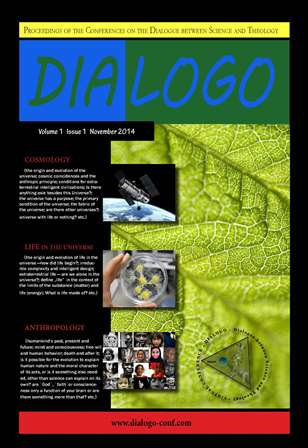
The belief that God actively acts in the world has been fundamental to orthodox Christian theology throughout the history of Christianity. Since the rise of modern science, however, this traditional understanding of God’s actions has attracted more and more critique. Firstly, it has been argued God cannot act in the world without violating the allegedly all-encompassing laws of nature, and, consequently, because the laws of nature cannot presumably ever be broken, it is considered totally impossible for God to influence the physical world in any way. Secondly, it is claimed that even if breaking the laws of nature was not, in theory, impossible, it would still be, in practice, impossible for an immaterial entity such as God to influence the material world. In this article, I argue that the first objection, i.e., that God cannot act in the world, holds partly true. I maintain that God cannot act without interfering with the processes of nature (although some recent attempts of building noninterventionist theories of God’ actions have been made). Nevertheless, I do not see how God’s intervention would constitute a problem for modern physics, as has often been proposed. Moreover, the second claim, i.e., that immaterial entities cannot affect material entities, is not based on evidence but on an unfounded assumption that because we do not know the mechanism of causation between immaterial and material entities, this causation is not possible.
More...
This paper is trying to put together two different researches, from theology and from genetics, about a general and undetermined topic, death. It is undetermined because no one can say something demonstrable and unequivocal about it, since no person alive can cross over the edge of life and come back from the domain of death with information about it. But we can discuss nevertheless things that are obvious and possible to be reasonably inferred about death even by livings. In this regard Theology will provide the mainline of what is to be known as death for religion in general, while Genetics will try to come with its research to sustain or contradict the general premise: death is not an ontological behavior of living matter, but an imposed attribute after the sin occurred into the world.
More...
Abortion, the cruel reality of the contemporary mankind, bites with no mercy our life and lacerates the humanity face, relativizing life’s ultimate value. We fight for the animal’s lives and rights, but we kill our children in womb. We are confused and living up to the rules imposed by us, and we fail, because we do not see the „Light of the world” (John 8,12) - Jesus Christ, losing sight of the reference frame – the divinity. We have declared God dead [1], the fountain of life , and we put ourselves in His place. We lost indiscriminatingly the values of “as Gods” ( Genesis 3,5) and “as God’s image” (Genesis 1, 27) drifting on the gradient of big fails, as big as God we have chased but never listened. So, that, from the survival outlook and lacking of love in our life, the fight for survival targets against the somebody ‘s else life, and no illustration is more eloquent and tragic as the mothers, families and society’s fight against the procreation generally, and particularly against the unborn child.
More...
Is there a way without conquests and wars to be found in the relationship of theology and science? This relation is analyzed from the perspective of the concept of frontier in order to establish the conditions for a possible dialogue. Paradoxically, the frontier unites and divides at the same time. On the one hand, the frontier marks the differences, on the other hand it appears as a crossing, a passageway. The frontier is an in-between, a huge space in which the two sides are called together to explain each other, and in order to create a passage between the two sides. The methodological framework of analysis is the approach of analytical theology to distinctions in language and significance. As a frame of reference, the possibility conditions for a philosophical dialogue between phenomenology and analytical philosophy have been considered.
More...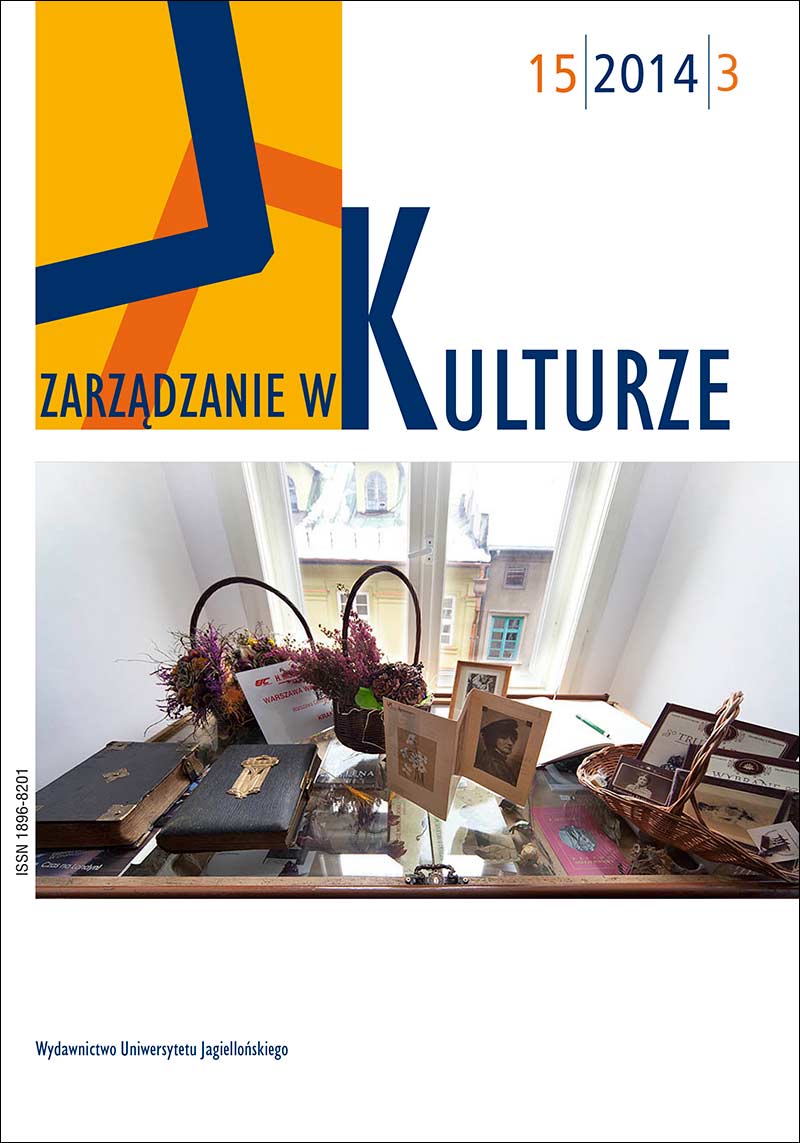
This article discusses a few aspects of the conception of one image found in the Lithuanian folklore and religious sculpture of the turn of 19th and 20th century. The author points out possible influences of the official Catholic Church liturgy, teaching, official religious art, devotional literature, sermons, chants on folklore and folk religious art. This article explores direct influences and the syncretism of these ideas in the peasant culture.
More...